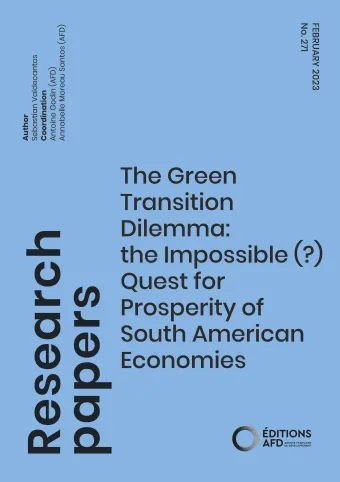Share the page
The Green Transition Dilemma: the Impossible (?) Quest for Prosperity of South American Economies
Published on

This paper explores the tensions that the transition toward a zero-carbon economy entails for countries relying on natural resources exploitation as the main drivers of (net) exports, as is the case of most South American economies. Given their relatively low diversification and high technology gaps compared to advanced economies, attaining higher prosperity levels driven by sustained economic growth has recurrently been hampered by balance of payments crises. Using a simple long-run demand-led theoretical model with balance of payments constrained growth we show that if the structural limitations in their productive structure are not overcome, the decarbonization of the economy, be it exogenously imposed by the rest of the world or sovereignly decided by each South American country, will be exposed to the dilemma of increasing growth or reducing greenhouse gas emissions. Underpinning this dilemma is the essential role of exports and their associated carbon intensity. Finally, we show that to solve this green transition dilemma, even a process of structural change like the one proposed by the old Latin American structuralist school might not be sufficient – it is only through a “big environmental push” that the long-lastingly desired prosperity of South American countries can cease to be an impossible quest.
Useful Information
-
Authors
-
Sebastian VALDECANTOS
-
Coordinators
-
Annabelle MOREAU-SANTOS, Antoine GODIN
-
Edition
-
271
-
Number of pages
-
38
-
ISSN
-
2492 - 2846
-
Collection
-
Research Papers
